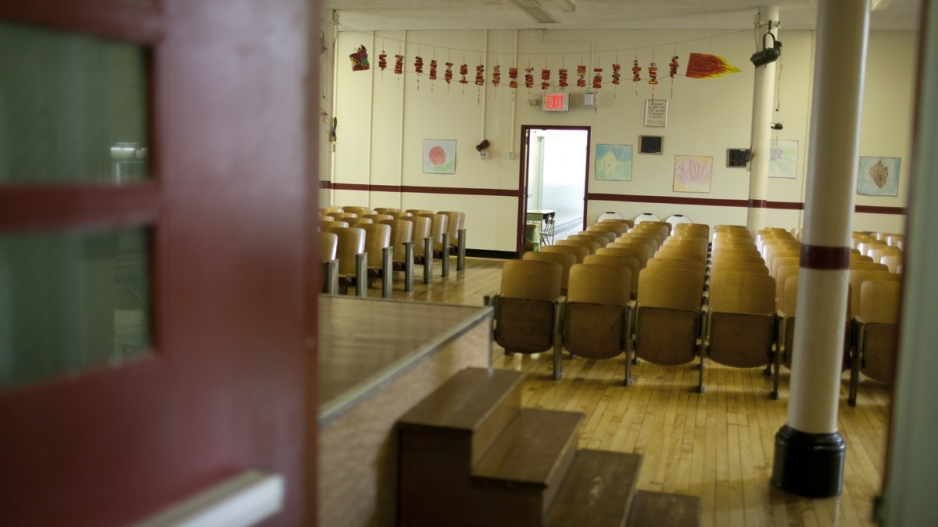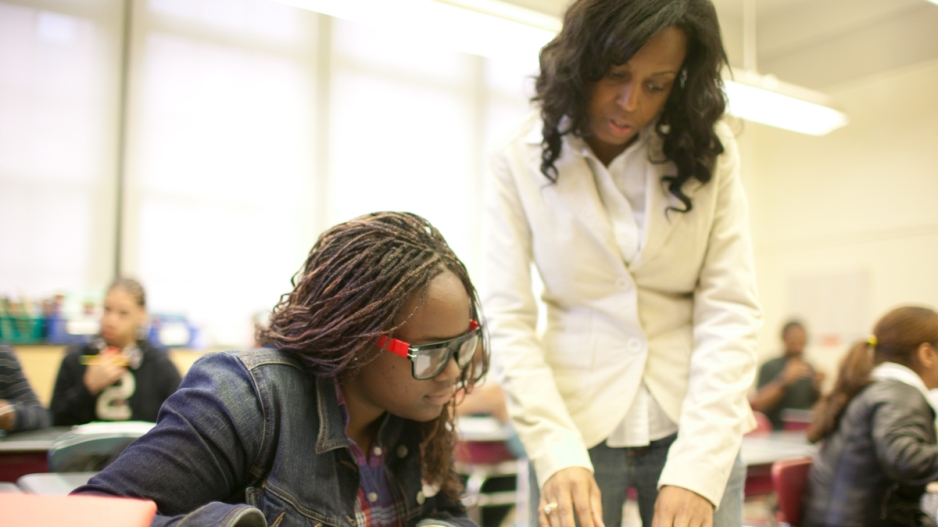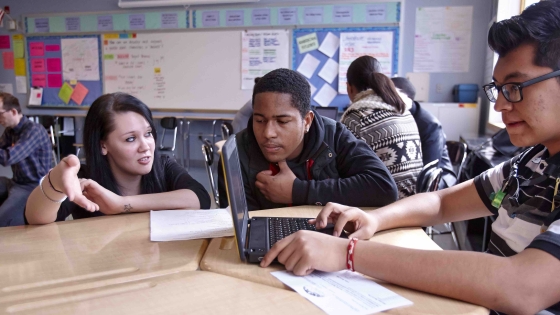This has been a year like no other for schools and communities in New York City and across the country. Amid the most devastating pandemic in recent history, our nation also struggled to heal wounds from a painful and oppressive legacy of racism. At the Research Alliance for New York City Schools, as in many organizations, these events motivated us to reflect more deeply on our mission, our capacities, and our role in advancing a more just society. We committed to necessary changes that would bring a more explicit racial justice lens to our work, and redoubled our efforts to develop new research that will promote better, more equitable educational experiences and outcomes for NYC students. As we conclude the year, we are especially reflecting on:
- How Research Alliance findings have informed our partners and the public conversation about schools;
- Changes that we’ve made internally because of the disruptions caused by COVID-19, and as part of our commitment to advancing racial justice and equity; and
- Lessons learned this year—as well as hard questions raised—about how we can maximize the immediacy, utility, and impact of the Research Alliance’s work.

Even in the midst of a challenging year, the Research Alliance has continued to produce publications to inform policymakers, school and district leaders, and other education stakeholders. We engaged in numerous virtual conversations and panels aimed at sharing evidence to support more effective and equitable school policies and practices. And we worked with students, educators, parents, nonprofit service providers, journalists, and scholars around the city and the nation to continue to learn more about student needs and how these needs could be better met. As we end this year, we are monumentally grateful to all of them for making time to share their experiences and perspectives with us in the interest of building knowledge that will ultimately inform a stronger education system.
How Research Alliance Findings Have Informed Partners and the Public
Publications
We published a variety of reports, briefs, and Spotlight posts in 2020. Highlights include:
- Exploring the Evidence on Virtual and Blended Learning provided an overview of research and practical guidance on strategies to implement remote teaching and learning, as well as strategies that combine virtual learning with in-class instruction.
- Building Teacher Capacity to Interrupt Racism in Schools: Studying the Work of the Center for Racial Justice in Education presented findings about two programs from the Center for Racial Justice in Education (CRJE, formerly Border Crossers), an organization that aims to combat racism in schools.
- Mentoring, Technology, and Social and Emotional Learning: Findings from the Evaluation of iMentor assessed the implementation of iMentor’s College Ready program, as well as its impact on students’ social and emotional learning (SEL), academic outcomes, college going activities, and transitions to college.
- Identifying and Supporting Students Experiencing Homelessness, part of the EdResearch for Recovery project, considered what schools can do to support students experiencing homelessness amid the added vulnerability they have faced due to the pandemic.
- How Has the Supply of Career and Technical Education Changed Over Time in NYC? examined both the number of CTE programs available and the career themes represented over the last decade.
- Who Chooses Career and Technical Education in NYC? used high school choice data to explore students’ interest in CTE by race/ethnicity, gender, borough, and other characteristics.
We also contributed to the National Academies of Sciences’ Monitoring Equity report and the Building Education Equity Indicator Systems guidebook.
Media Coverage of Our Work
Research Alliance findings and experts were featured in a broad range of reporting on education issues, including:
- "Academic Gap: Why Black Students Lag Behind in Schools and What's Being Done to Fix It," PIX 11, (November 17, 2020).
- "Schools Shifted Chronic Absenteeism Strategies Amid Closures," Education Dive, (July 31, 2020).
- "A School Admissions Process That Caused Segregation Fell Apart in Weeks," The New York Times, (June 11, 2020).
- "Ideas to Power Next School Year in NYC: How Can We Use and Improve Remote Learning?," Chalkbeat, (May 25, 2020).
- "NYC Expands Antibody Testing But Still Needs a Plan for School Communities, de Blasio Says," Chalkbeat, (May 7, 2020).
- "As Wealthy Parents Relocate Students from Public Schools in West Harlem, Districts Are Left Vulnerable to COVID-19 Budget Cuts," Columbia Spectator, (April 21, 2020).
- "Super Commuters in Sophomore Year: The Impact of NYC’s Longest Rides to School," City Limits, (March 10, 2020).
- "The Lasting Effects of Stop-and-Frisk in Bloomberg’s New York," New York Times, (March 2, 2020).
- "Michael Bloomberg is Running for President on his Education Record. Here’s What Research Found about Those Policies," Chalkbeat, (February 25, 2020).
- "The 2020 Education Power 100," City & State New York, (February 16, 2020).
- "New York City Spends $200 Million a Year to Aid High-Poverty Schools, With Mixed Results," The Wall Street Journal, (January 28, 2020).
- "NYC Community Schools, Focused on Child Poverty, Succeed in Key Metrics, Study Finds," Washington Post, (January 28, 2020).
Changes We Made at the Research Alliance This Year
In 2020, we found ourselves changing the way we work—both as a direct response to COVID-19, and in an effort to make the pursuit of racial justice and equity more explicit in our research. These changes included:
- Transitioning to a remote work environment, and quickly adjusting project timelines and activities, in the wake of school closures;
- Adopting strategies for remote data collection with minimal burden on students, teachers and other school staff;
- Leveraging previously scheduled surveys to gather information about the rollout of remote instruction;
- Helping partners respond to the COVID crisis, by collecting information about student needs, as well as available resources;
- Conducting rapid evidence scans to inform school and district responses to the virus;
- Planning and participating in virtual meetings, conferences, and forums to share pertinent findings and lessons;
- Making changes to the Research Alliances’ guiding principles to better reflect our commitments to racial justice and equity;
- Renewing our focus on creating a diverse, inclusive team, and elevating the voices of Black scholars and other scholars of color;
- Reviewing relevant literature to inform district and schools leaders’ thinking about racial justice in education, and to determine where we can make the most meaningful contributions with our own research; and
- Developing new strategies to monitor educational equity—particularly in terms of the resources and opportunities available to students—with the goal of identifying leverage points that can help improve equity in NYC schools.

What’s Next? Maximizing the Timeliness, Utility, and Impact of Our Work
COVID-19 laid bare a number of important realities, including deep inequities in education, healthcare, housing, and the labor market. It reminded us how rapidly the policy context can change, and how vital up-to-date information is for making smart decisions. Of course, the pandemic also underscored the incredible hard work that educators put in every day, as well as the wide-ranging, often urgent needs that schools address for students and families.
As we reflect on these insights, we find ourselves thinking hard about the Research Alliance’s work and potential for impact. How do we ensure that the questions we’re asking really matter for policy and practice? How should we understand the broader systems, structures, and resources—beyond school walls—that affect students’ educational trajectories? How do we expand the universe of people and institutions that shape our learning agenda? How do we provide more opportunities for diverse stakeholders, including teachers, parents, and students, to engage with and help make sense of our findings? How can we gather and analyze data in ways that are minimally intrusive for research participants—and that produce evidence quickly enough to inform decisions in real time? How do we ensure that our work produces actionable insights that educators, district leaders and policymakers can use to serve students and communities more effectively?
Looking ahead to 2021, we will continue to grapple with these questions, as we develop new projects, and as we continue ongoing studies of topics ranging from Computer Science, and Career Technical Education, to supports for homeless students and social and emotional learning.
In the meantime, please know that we are grateful for your readership and continued support of the Research Alliance. We welcome your feedback and suggestions for new areas of work. And we wish you and your family a safe, healthy, and happy holiday season.

